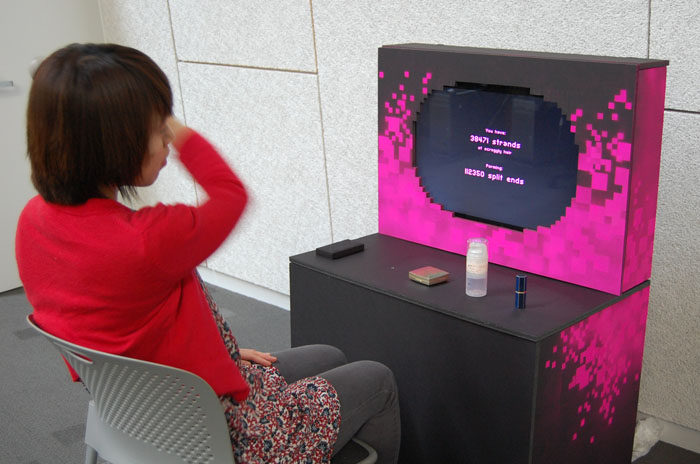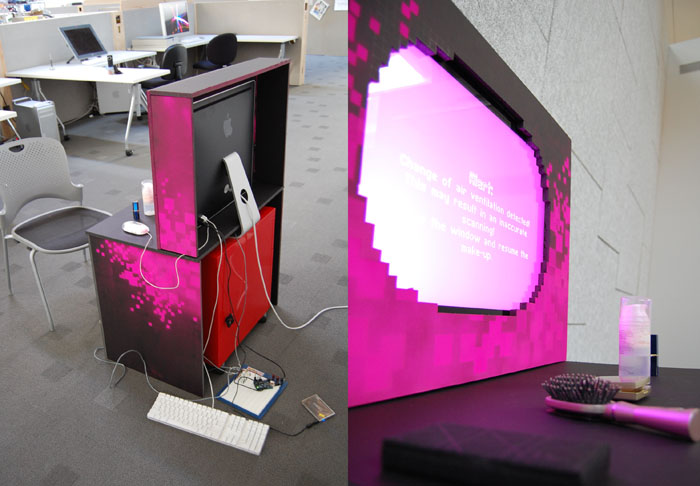 |
Ina Xi| Media Design Program | Art Center College of Design | zxi@inside.artcenter.edu | |
|
| Interaction Design | Experience Design | Information Design | Alternative Narratives | Human Factor Study |
| Home | About | Contact |
"USELESS MIRROR" - A Critique on Ubiquitous Computing |
|
The Useless Mirror explores how design can be used as forms of criticism on current technological trends that inspire and shape it. Ubiquitous Computing refers to a new model of Human-computer Interaction coined by Mark Weiser in his essay the Computer for the 21st Century, in which he depicted the world where information processing is embedded into everyday objects and activities. What would happen if everything around us are capable of thinking and responding actively to people's presence? The Useless Mirror, designed with thoughts for the ubiquitous living, claims to provide the most precise feedback on the user's appearence and tips for dressing up, based on the analysis of the data collected from the human body. The mirror envisioned an awkward situation of futuristic design when excessive information processing through an everyday object frustrates an activity for basic human need and irrationalizes the existence of the object. |
|
| There have been a lot of reflective thinking occurred to me through the making of the 'mirror', some to the project itself, some on the alternative methodology of experience design. I saw the process of designing something 'useless' a useful approach to evaluate and justify the existence of a product, as well as an approach to think retrospectively and critically about the established/emerging disciplines of design on a macroscopic level. | |
|
|
|
|
|
|


